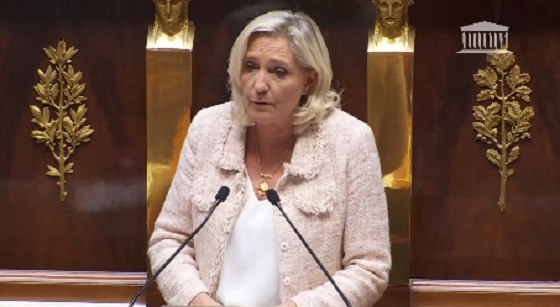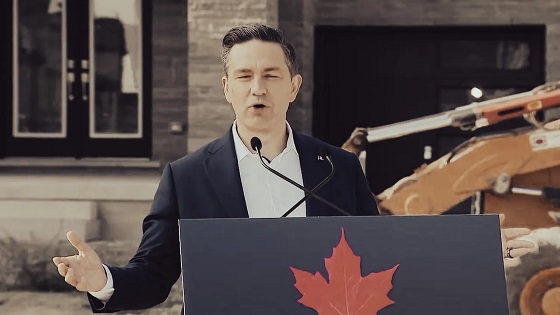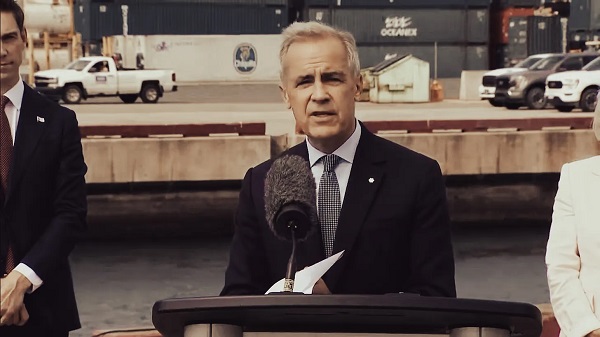Media
Trudeau claims Canada must subsidize CBC to ‘protect our democracy’
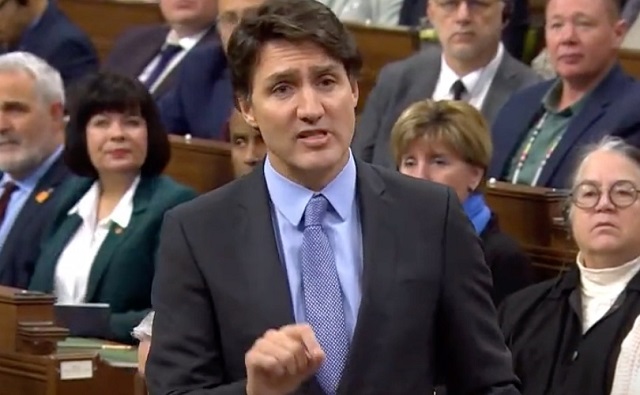
From LifeSiteNews
Trudeau failed to explain how the CBC could be an unbiased news source for Canadians when it is being funded by the Liberal party.
Prime Minister Justin Trudeau claims that Canada must continue to subsidize mainstream media outlet CBC to “protect our democracy.”
During the January 31 question period in the House of Commons, Trudeau promised continued funding for the Canadian Broadcasting Corporation (CBC), Canada’s public radio and television broadcaster, arguing that the state-funded outlet is necessary for Canada’s democracy.
“At a time of misinformation and disinformation, and the transformation of our media and digital era, we need CBC/Radio Canada to be strong to protect our culture, to protect our democracy, and to tell our stories from one end of the country to another,” Trudeau said.
“We’ll always be here to defend CBC/Radio Canada, and we are going to seek to make necessary investments … to fulfill their mandate to inform and to strengthen democracy here in Canada,” he continued.
Justin Trudeau has the gall to say that state-run media like the CBC is good for democracy! Oh yeah, it's good for the government to subsidize all the media too. pic.twitter.com/QRWtcaPGm0
— David Krayden (@DavidKrayden) February 1, 2024
Trudeau’s statement was in response to a request from Quebec Member of Parliament Martin Champoux (BQ-Drummond) for increased government funding for the Quebec division of CBC, Radio Canada.
Trudeau pointed out that the Liberal government is already massively subsidizing the mainstream media.
“Supporting journalists and local media is very important for this government, particularly at this time that is challenging,” he stated.
Ironically, Trudeau celebrated Bill C-18, the Online News Act, a law which mandates that Big Tech companies pay to publish Canadian content on their platforms.
“This is why we put forth [Bill] C-18 which will help our journalists at all levels to continue operating,” Trudeau stated. “We’ll be here to support a free and independent press. That is professional. We know there’s a lot of work to be done still.”
However, thanks to his law, Canadians can no longer view or share news on Meta, the parent company of Facebook and Instagram, which blocked all access to news content in Canada rather than pay the fees outlined in the new legislation. Google, on the other hand, agreed to pay Canadian legacy media $100 million.
Additionally, Trudeau failed to explain how CBC could be an unbiased news source for Canadians when it is being funded by the Liberal party.
Indeed, many Canadians have pointed out that the massive subsidies have made the CBC into a wing of the Liberal party.
In April, Conservative Party leader Pierre Poilievre labeled the CBC a “biased propaganda arm of the Liberal Party and frankly negatively affects all media.”
“For example, Canadian Press is negatively affected by the fact that you have to report favourably on the CBC if you want to keep your number one, taxpayer-funded client happy,” he said.
“We need a neutral and free media, not a propaganda arm for the Liberal Party… When I am prime minister, we are going to have a free press where every day Canadians decide what they think rather than having Liberal propaganda jammed down their throats.”
Poilievre added that if he becomes prime minister he will cut “corporate welfare,” including money to the CBC.
Despite being nominally unaffiliated with either political party in Canada, CBC takes in about $1.24 billion in public funding every year. This is roughly 70 percent of its operating budget.
That subsidies are the CBC’s largest single source of income has become a point of contention among taxpayers who see the propping up of the outlet as unnecessary.
Furthermore, the CBC was set to receive increased funding thanks to the deal with Google that followed the passing of Trudeau’s Online News Act.
The deal was finalized in early December. Under the new agreement, Google will pay legacy media outlets $100 million to publish links to their content on both the Google search engine and YouTube.
As a result of the government handouts and the Google agreement, roughly half the salary of a CBC journalist earning $85,000 is estimated to be paid by the combined contributions of the Trudeau government and Google.
Additionally, Trudeau recently announced increased payouts for legacy media outlets ahead of the 2025 election. The subsidies are expected to cost taxpayers $129 million over the next five years.
However, even these massive payouts may be insufficient to keep the CBC relevant amid growing public distrust in mainstream media.
According to a recent study by Canada’s Public Health Agency, less than a third of Canadians displayed “high trust” in the federal government, with “large media organizations” as well as celebrities getting even lower scores.
Large mainstream media outlets and “journalists” working for them scored a “high trust” rating of only 18 percent. This was followed by only 12 percent of people saying they trusted “ordinary people,” with celebrities receiving only an eight percent “trust” rating.
Media
Cancel culture wins ultimate victory as murder of Charlie Kirk ghoulishly celebrated by radical Left, media included

Meanwhile, CBC journo declares nuclear family to be an extremist construct. Plus! Old school journos fight back
I didn’t want to write this week about how Canadian media covered the assassination of Charlie Kirk. There was far too much coverage, way too much raw anger on social media and there’s probably more to come, so I figured it would be best to hold off.
That didn’t work. So this post is a little longer than usual, but it’s all good stuff. Let’s go.
The Rewrite enjoys your support and has no paywall.
Please consider becoming a free or paid subscriber.
First, I have to say this: when people without the capacity to reason hear words with which they disagree and are unable to counter, they get frustrated. Then frustration turns to anger, which leads to demonization which is one bolt action rifle away from violence. We’ve seen it through cancel culture, in which Canada engages enthusiastically, often fueled by media no longer willing to fully defend freedom of speech. That predisposition is neither professional nor helpful if we wish to sustain a healthy, modern liberal democracy.
And we all know there is not a single university in our country that would have permitted Kirk to speak, likely citing the “security” artifice that so often is accepted by media at face value. We are also aware that a great many in the news industry would have supported the shutting down of Kirk (with whom I would have had many differences of opinion).
Take, for instance, the Tweeted reaction to Kirk’s death posted by the former chair of the journalism school at Thompson Rivers University, Alan Bass:
“Do you remember the Nazis? Sometimes unfortunately it’s necessary to kill evil people to save many lives.”
Bass is also listed as an editor for the Canadian Journalism Foundation.
Manitoba’s Minister of Families Nahanni Fontaine was not unhappy Kirk was killed, noting in a post initially missef by legacy media and that she later deleted that he was “racist, xenophic, transphobic, Islamophobic, white nationalist, sexist” you name it – “the man stood for nothing but hate.” She later apologized.
The federally funded news platform Cult Mtl said “to hell“ with Charlie Kirk “you reap what you sow” while a University of Toronto professor who labelled Postmedia fascist was on leave after Tweeting that shooting was “too good” for fascists.
Then, just when I thought there was no more to be said, CBC posted a list of “Some of Charlie Kirk’s most controversial takes” and that he “courted controversy with statements that seemed (my emphasis) designed to provoke those who disagreed with him” – an accusation that could be levelled at the doorstep of pretty much every opinion writer ever. Many on social media interpreted this post as excusing his murder in a “he had it coming” fashion. No doubt Bass enjoyed it, as he would have this piece by the Guardian, the UK’s voice of the Left. Alberta Federation of Labour President Gil McGowan complained CBC wasn’t properly laying blame, the Mother Corp switched from describing Kirk as a prominent conservative commentator to “far right activist” and stirred up a storm by failing to correct an expert who falsely claimed Kirk had called for the execution of gay people. Whew!
Enough. This clip – and it applies to all sides – illustrates the real problem. And I’ll leave it at that. For now.
|
Speaking of tolerating the views of others, .Catherine Cullen, host of CBC’s “award-winning” The House, opened the Mother Corp’s cultural kimono last week and gave us all a good look at the goods while interviewing Industry Minister Melanie Joly. Prime Minister Mark Carney had planned for his cabinet to hear from Kevin Roberts, president of the Heritage Foundation, the US think tank behind Project 2025 and almost certainly a fan of Charlie Kirk.
Joly defended the planned encounter as an exercise in understanding (it never took place) but Cullen focused on what she believed was one of the Heritage Foundation’s most intolerable positions.
“But this is a group that holds positions like this one: Quote, married men and women are the ideal natural family structure because all children have a right to be raised by the men and women who conceive,” said Cullen.
“Tell me about the decision to say we as a government can learn from this person rather than standing up against the positions that he’s advocating for.”
It appears from this statement that, within the CBC culture, the nuclear family is a radical proposition. Certainly some people see it that way. But a lot of people don’t. And while we all know many good people in single parent families, blended families and same sex families, for instance, the structure that so alarms the CBC has been aspired to for many, many thousands of years. It’s not necessary to agree with it. No one imposes it and if people have arguments against it, they can certainly make their case just as those who favour it should be able to do so without condemnation.
Mom, dad and the kids is hardly a radical construct. Just don’t say it out loud around the CBC which appears to have taken it upon itself to not just report the news but to redefine and police our culture.
What Cullen should have done was phrase her question without owning it. She could have conducted the interview by asking something like this:
“Minister Joly, there are some Canadians who strongly disagree with some of the positions promoted by the Heritage Foundation and object to you being open to engaging with them. What’s your response!”
But, she didn’t. The opportunity was instead seized to evangelize for personal beliefs and, in doing so, journalism was harmed.
Switching to CTV, Alberta’s new guidelines for athletics require all participants in female sports to confirm they were assigned to that biological category at birth.
That means students now have to sign a form attesting that is the case. CTV found – or was approached by – a 14-year-old volleyball player who called the guidelines unnecessary and “transphobic.” Its team also found the student athlete’s mother who, equally troubled, said she had spoken to thousands of parents and “Nobody is worried about their girls playing with trans girls and getting hurt in unfair play.”
Reporters Angela Amato and Connor Hogg apparently agreed because, despite assigning them both to the story, CTV was unable to find any parents in Alberta who agreed with the new sports guidelines. Indeed, it’s unclear they even tried.
Which is too bad because had they done so they could have produced a pretty interesting, fulsome story establishing a range of perspectives on the issue and fully informing their viewers and readers. Instead, they left one side of the debate convinced CTV is hostile to its perspective and diminished public trust in their craft and their employer.
Brickbat this week goes to Glen McGregor of Rogers‘ City News for completely unnecessary smartassery when he used his Twitter account to point out a typo in a Conservative Party news release. As he well knows, there is no shortage of political partisans on social media who are happy to mock their opponents on these occasions. McGregor inserting himself into their ranks only fueled public mistrust in journalism and City News’s reputation as an outlet that can be trusted to report without prejudice.
And a bow goes to Brian Kappler – who had a great career reporting for the Montreal Gazette and as a member of the Parliamentary Press Gallery – for his dismantling of a CBC News report following Carney’s Monday announcement of things he says his government will do. Parental warning applies.
“Carney will never need sex again after this blow job,” Tweeted Kapler. “600 promises/claims in this; not one balanced with a performance check. Not one hint that all these handouts will blow up the deficit. And “elbows up” – once parroted so lovingly by CBC – has vanished down the memory hole.”
Undaunted, CBC’s The National carried on and its coverage was described to me by another journalist:
“CBC led the newscast with six minutes of discussion out of a news release event in St John’s. Reporter wasn’t even there, just used video and multiple clips from the event, then filed out of Ottawa.
“Followed with boring talkback about more undefined help coming for business affected by tariffs. I mean, it’s not even effective propaganda.. They’re boring the audience to death.”
And there you have it. Yours truly isn’t the only one in despair for the trade within which he once toiled.
(Peter Menzies is a commentator and consultant on media, Macdonald-Laurier Institute Senior Fellow, a past publisher of the Calgary Herald, a former vice chair of the CRTC and a National Newspaper Award winner.)
Invite your friends and earn rewards
Censorship Industrial Complex
UK’s top cop wants to ‘stop policing tweets’: report

From LifeSiteNews
By Frank Wright
‘I don’t believe we should be policing toxic culture wars debates,’ said Sir Mark Rowley, chief of the London Metropolitan Police.
In a remarkable shift, Britain’s most senior police officer is to recommend changes to the law which could allow police to “stop policing tweets” within weeks.
Sir Mark Rowley, chief of London’s Metropolitan Police, said he will approach the Home Secretary with proposals which could see police return to policing real-life crime.
Sources close to Rowley told the UK’s Daily Telegraph:
He wants Shabana Mahmood, the new Home Secretary, to change the rules so police officers are not required to record or investigate complaints when there is no evidence the suspect intended real-world harm.
The change would be a remarkable departure from the crackdown on “non-crime hate incidents,” which have seen British people given sentences of several years for remarks made online.
Rowley’s move to change the law comes alongside the UK Labour government’s proposal to introduce digital ID – which could tie access to bank accounts and work to online speech.
Return to common sense policing?
The Telegraph’s source said Rowley “is proposing a shake-up of legislation that would give officers greater discretion to use ‘common sense’ when deciding whether to record and investigate complaints about comments on social media.”
The proposed change follows the arrest of comedy writer Graham Linehan, prompting the Metropolitan Police Chief to respond.
Responding to Linehan’s arrest, Rowley said on September 3 that a return to common sense was needed as a series of high-profile arrests over “non-crime hate incidents” was undermining public trust in the police.
He said the policies of successive governments had left the police in an “impossible position” over hate speech laws.
“I don’t believe we should be policing toxic culture wars debates,” Rowley added in a September 9 report, before claiming the police were not responsible for their actions.
“[O]fficers are currently in an impossible position. I have offered to provide suggestions to the Home Office on where the law and policy should be clarified.”
Telegraph journalist Allison Pearson, who was doorstepped by police last November for a tweet described as a “non-crime hate incident,” responded on September 9 by saying Rowley’s step towards defending free speech was “disingenuous” at best.
“At the risk of being arrested,” Pearson said, “I suggest Met chief Mark Rowley is a total muppet.”
Commenting on the recent arrest of comedian Graham Linehan for online speech, she added, “It is disingenuous in the extreme for the commissioner to say officers’ hands are tied in cases like that of Graham Linehan.”
Pearson explains that Linehan, famous for writing sitcoms, was arrested by five armed police after a “notorious trans activist” reported his tweets to police.
Rowley’s claim is that guidelines to police compel them to treat such appeals as crime reports, leaving no room for discretion.
Pearson then refers to the many real-life crimes to which British police do not routinely respond – even over decades:
It’s perfectly clear that the police have discretion to ignore complaints, even crimes, if they want to. Let’s see now:
Phone theft – ignored.
Shoplifting – essentially legal.
Carjacking – we’ll send you a crime number.
Burglaries – help yourself, lads!
Sexual harassment, child gang rape – er, sorry, cultural sensitivities.
Pearson concludes that the police chief is himself being dishonest – at best – in saying that speech crime laws tie the hands of officers.
For Sir Mark to claim that his officers were unable to use their common sense and ignore a complaint from a notorious trans activist about [Linehan] is to insult the public’s intelligence.
Baronness Winterbourne of the House of Lords responded, recommending that “[i]nstead of blaming Parliament for your officers’ inability to think for themselves intelligently, perhaps you might firmly tell them, please, to stop being stupid.”
En désespoir pic.twitter.com/Dm7XViTZ8s
— Emma Harriet Nicholson (@Baroness_Nichol) September 5, 2025
As the latest Telegraph report shows, government advice to police already exists – which has not prevented the policing of so-called “non-crime hate incidents.”
More than 13,200 non-crime hate incidents were recorded by police in the 12 months to June 2024, a similar number to the previous year, despite new guidelines requiring police to investigate only ‘when it is absolutely necessary and proportionate and not simply because someone is offended.’
Rowley was also recorded on a UK radio show defending the officers who carried out Linehan’s arrest.
Graham Linehan’s case is but one of many in which British people have been prosecuted for online speech. As the Free Speech Union reported in April 2025, new data showed that over 12,000 people in Britain are arrested for speech crimes every year.
Hitchens: Disband the police?
Peter Hitchens, a veteran conservative commentator and staunch Christian, spoke out on GB News – calling for the British police to be completely abolished and replaced.
Peter Hitchens calls for the police to be disbanded and rebuilt from scratch, accusing them of becoming 'a sinister menace to freedom of speech'.
'They’re not responsible for crime anymore. They’re a politically correct body who think they’re policing thought.' pic.twitter.com/EylPbMyviP
— GB News (@GBNEWS) September 10, 2025
Hitchens, a devout Christian, said the British police should be “disbanded” as they have become a “sinister menace to the freedom of speech.”
“They’re not responsible for crime anymore,” Hitchens explained. “They’re a politically correct body who think they’re policing thought.”
He told GB News’ Michelle Dewberry that “the police don’t believe they should be doing what we think they should be doing. They do believe they should be arresting people for incorrect tweets. The only solution is to disband them and start again.”
Elsewhere Hitchens argued this was no novel development, saying this “new style of policing” went back 20 years.
Two-tier Keir Starmer
The embattled Prime Minister Keir Starmer has long been accused of “two-tier” policing in cracking down on “far-right thugs” who commit online speech crimes.
As the murder of Charlie Kirk focuses attention on the toxic speech of the left, Britain’s justice system sees no evil when left-wingers call for the collective murder of people on the right.
Whilst former Conservative councilor Lucy Connolly received a 31-month sentence for an angry tweet about illegal migrants, a councilor for Starmer’s own Labour Party was found not guilty of incitement to violence after demanding that everyone he saw as “far right” be murdered.
Ricky Jones was declared innocent after publicly calling for his comrades to “cut the throats” of the so-called “disgusting Nazi fascists” who were protesting over the murder of children by a man of migrant heritage. Three girls were killed in Southport by a Rwandan youth last July. After stabbing the nine children in a frenzied assault, Axel Rudakubana told police, “It’s a good thing those children are dead.”
When angry protests broke out at the murders, Jones responded on video, saying of the so-called “far-right” protesters: “We need to cut all their throats and get rid of them all.”
Jones was freed, Connolly was jailed.
Talking of calls for violence,
Violent extremist RICKY JONES was released on bail until his trial in January despite the severity of his crime.
Protesters have been jailed for very minor crimes yet their vile ex Labour Party councillor gets totally different treatment.
This… https://t.co/XW4Oo2lB4R pic.twitter.com/7C2PtZL9kW
— Antifa Public Watch official (@UnmaskedAntifa) October 23, 2024
Despite the obvious dangers in preferring the policing of speech to genuine threats and crimes, there seems to be no cause for concern from the point of view of Britain’s prime minister.
During Wednesday afternoon’s questions, Sir Keir Starmer was asked whether he would commit to revising speech laws to “ensure legitimate free expression is protected.”
Starmer replied with a stock response: “I’ve been clear throughout, we must ensure the police focus on the most serious issues and the issues that matter most to our constituencies and all communities.”
He ended by saying he was proud of Britain’s long history of free speech, which he said he would always protect.
“And that includes tackling issues like antisocial behavior, knife crime and violence. And we have a long history of free speech in this country. I’m very proud of that, and I will always defend it.”
-

 espionage2 days ago
espionage2 days agoInside Xi’s Fifth Column: How Beijing Uses Gangsters to Wage Political Warfare in Taiwan — and the West
-

 Censorship Industrial Complex2 days ago
Censorship Industrial Complex2 days agoDecision expected soon in case that challenges Alberta’s “safe spaces” law
-
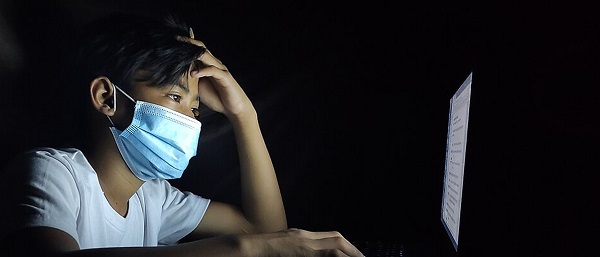
 COVID-192 days ago
COVID-192 days agoWhy FDA Was Right To Say No To COVID-19 Vaccines For Healthy Kids
-

 Business16 hours ago
Business16 hours agoCarney Admits Deficit Will Top $61.9 Billion, Unveils New Housing Bureaucracy
-

 Energy2 days ago
Energy2 days agoTrump Admin Torpedoing Biden’s Oil And Gas Crackdown
-

 Crime2 days ago
Crime2 days agoTransgender Roomate of Alleged Charlie Kirk Assassin Cooperating with Investigation
-

 Energy2 days ago
Energy2 days agoThe IEA’s Peak Oil Fever Dream Looks To Be In Full Collapse
-

 Crime1 day ago
Crime1 day agoDown the Charlie Kirk Murder Rabbit Hole




